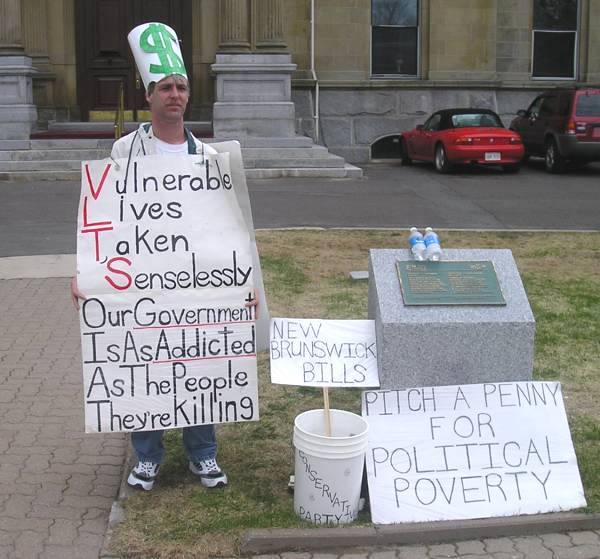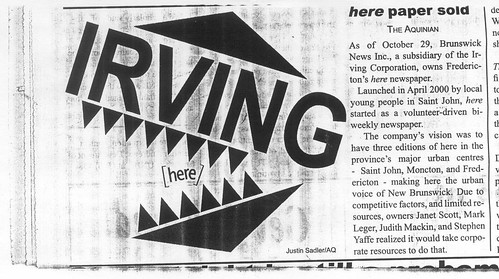It’s beautiful in the Capital and Tim Smith is hanging in there but he is getting a little hungry.
Mr Volpe never came out to chat with the protester so I guess that they don’t care if he dies or live??

The guy hasn’t eaten since Monday night.
The MLA’S are going home but Tim will have to stay in the shelter I guess.
It sure was nice of Stuart Jamieson < Liberal MLA > to put the protester in a motel for three evenings.
Anyone out there has a spare room? Let Tim know about it!
He’s a very nice guy! He don’t drink alcohol and take drugs! He’s very clean and he wouldn’t hurt anyone.
Abel LeBlanc < Liberal MLA > came over and bought some juice and water to Tim this morning.
He has to drink a lot of Juice.
I encourage Tim to wear his sign at the Farmer’s Market in the morning.
He could put his bucket near him and people would drop by pennies in his bucket!
I’m going to go with him and see what will be the reaction from the public?
I had some fun in that location when I was protesting! Lots of snobby citizens in the Capital!!..lol
Ok…There’s a few actions going on but I’ll wait till I’m home tonight and write them down for ya!
Hey???? Don’t forget? Do you want to help Tim?
Do you want to pay for a motel room anonymously?
Just send me a note and I’ll tell him where to go!!!
Hey? The guy won’t ask anyone for help! He never asked me to write this email.
I am just doing this out of the goodness of my heart! I have a Heart???
Sometime I wonder???..lol..Have a good weekend!!! Bye bye



